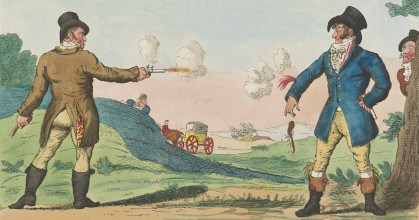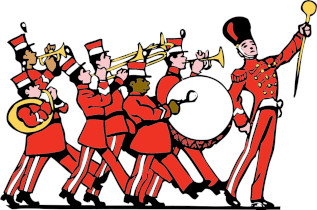Nigel Rees? Stephen Fry? Anonymous?

Question for Quote Investigator: This website contains numerous examples of quotations that have been reassigned from anonymous or forgotten individuals to famous figures. The general phenomenon has been designated “Churchillian Drift” because of the large number of sayings that have been incorrectly attributed to Winston Churchill. Would you please explore the origin of this term?
Reply from Quote Investigator: Nigel Rees is an English quotation expert who has authored numerous valuable reference works. He has also served as the host of a long-running BBC panel game show about quotations called “Quote…Unquote”. He published a series of books based on the show. In 1983 the third volume in the series appeared, and Rees penned a comically exaggerated remark about Bernard Shaw:1
Hence, Rees’s First Law of Quotation: ‘When in doubt, ascribe all quotations to George Bernard Shaw’. The law’s first qualification is: ‘Except when they obviously derive from Shakespeare, the Bible or Kipling.’ The first corollary is: ‘In time, all humorous remarks will be ascribed to Shaw whether he said them or not’.
Rees noted that Winston Churchill was another powerfully magnetic figure in the world of quotations. Boldface added to excerpts by QI:
People are notoriously lax about quoting and attributing remarks correctly, as witness an analogous process I shall call Churchillian Drift.
The Drift is almost indistinguishable from the First Law, but there is a subtle difference. Whereas quotations with an apothegmatic feel are normally ascribed to Shaw, those with a more grandiose or belligerent tone are, as if by osmosis, credited to Churchill.
Rees listed other figures that the popular mind had settled upon as the likely sources of quotable sayings including: Johann Wolfgang von Goethe, Oscar Wilde, and Orson Welles
QI observes that the wits, sages, heroes, villains, stars, and lovers of one era tend to displace some of the leading figures of previous eras. Thus, the list of magnetic figures in the quotation domain changes over time.
Below are additional selected citations in chronological order.
Continue reading “Phrase Origin: Churchillian Drift”







